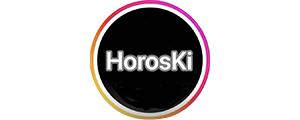Email format error
Email cannot be empty
Email already exists
6-20 characters(letters plus numbers only)
The password is inconsistent
Email format error
Email cannot be empty
Email does not exist
6-20 characters(letters plus numbers only)
The password is inconsistent

Market Information
Focus on market dynamics, grasp the pulse of the trend

7 Essential Tips for Selecting Africa Women's Wear Wholesale Suppliers
Understanding the African Fashion Landscape
Africa's vibrant fashion industry offers unique opportunities for boutique owners seeking distinctive women's wear collections. The continent's textile traditions combined with modern design innovations create a dynamic market where choosing the right Africa women's wear wholesaler suppliers becomes crucial for business success. Unlike manufacturers who create custom designs, suppliers provide ready-to-sell garments that require careful evaluation to match your boutique's brand identity and customer expectations.

Key Considerations When Choosing African Suppliers
1. Verify Supplier Authenticity
• Request official business registration documents
• Check membership in African fashion associations like AFI (African Fashion International)
• Verify physical address through Google Maps street view
• Request references from other boutique clients
2. Quality Assurance Protocols
Africa's diverse textile traditions demand specific quality checks:
• Examine Ankara fabric color fastness
• Verify kente weaving authenticity
• Test garment stitching durability
• Request ECOCERT certification for organic cotton products
3. Minimum Order Quantity (MOQ) Flexibility
Top African women's apparel wholesalers typically offer:
• MOQs starting at 50-100 pieces per design
• Mixed design ordering options
• Seasonal collection sampling programs
• Stock rotation agreements for unsold inventory
4. Shipping and Customs Expertise
Ensure suppliers handle:
• ECOWAS trade compliance documentation
• DDP (Delivered Duty Paid) shipping options
• Temperature-controlled textile transportation
• Real-time shipment tracking systems
5. Market Trend Alignment
Evaluate suppliers' ability to provide:
• Contemporary interpretations of traditional prints
• Modest wear collections for diverse markets
• Climate-appropriate seasonal collections
• Fusion designs blending African and Western aesthetics
6. Payment Security Measures
• Escrow payment options through Afreximbank
• Flexible currency options (USD, EUR, CFA)
• Blockchain-based transaction tracking
• Credit terms for established relationships
7. Cultural Competency
Prioritize suppliers who:
• Understand regional style preferences
• Respect traditional textile significance
• Offer size charts matching African body types
• Provide culturally appropriate packaging options
8.Building Successful Supplier Relationships
When working with wholesale boutique suppliers Africa, consider these partnership strategies:
• Request quarterly trend forecasting reports
• Negotiate exclusive regional distribution rights
• Establish quality consistency benchmarks
• Implement joint marketing initiatives
9.Red Flags to Watch For
Avoid suppliers exhibiting:
• Unusually low pricing inconsistent with market rates
• Poor communication response times (72+ hours)
• Lack of clear return/exchange policies
• Pressure for upfront full payments
Top African Fashion Hubs to Explore
1. Lagos, Nigeria - Center for avant-garde African designs
2. Nairobi, Kenya - Leader in eco-friendly textiles
3. Casablanca, Morocco - Hub for luxury kaftans
4. Accra, Ghana - Pioneer in contemporary kente designs
5. Johannesburg, South Africa - African fashion tech innovation center
Conclusion
Selecting the right Africa women's wear wholesaler suppliers requires balancing cultural understanding with business acumen. By implementing these seven strategies, boutique owners can establish reliable supply chains offering authentic, high-quality African fashion that resonates with global customers. Remember to request sample shipments, verify certifications, and gradually build partnerships with suppliers demonstrating consistent quality and market responsiveness.

